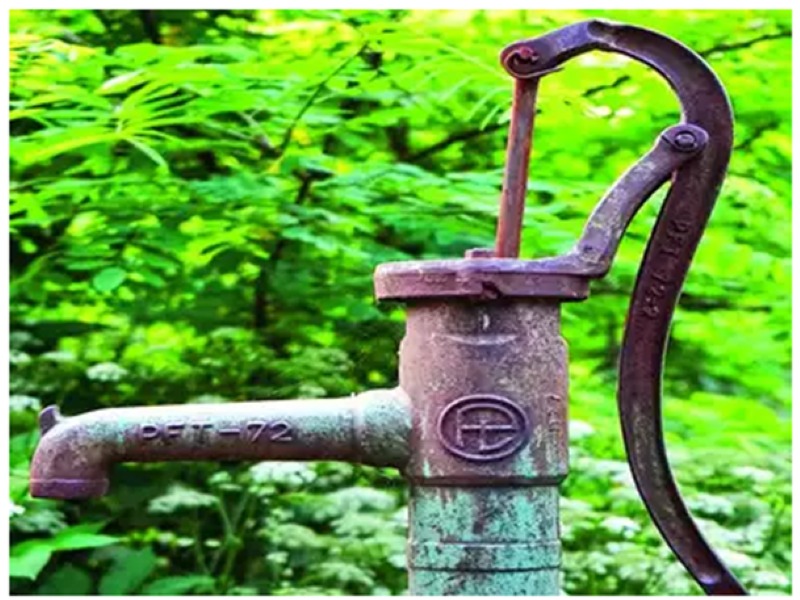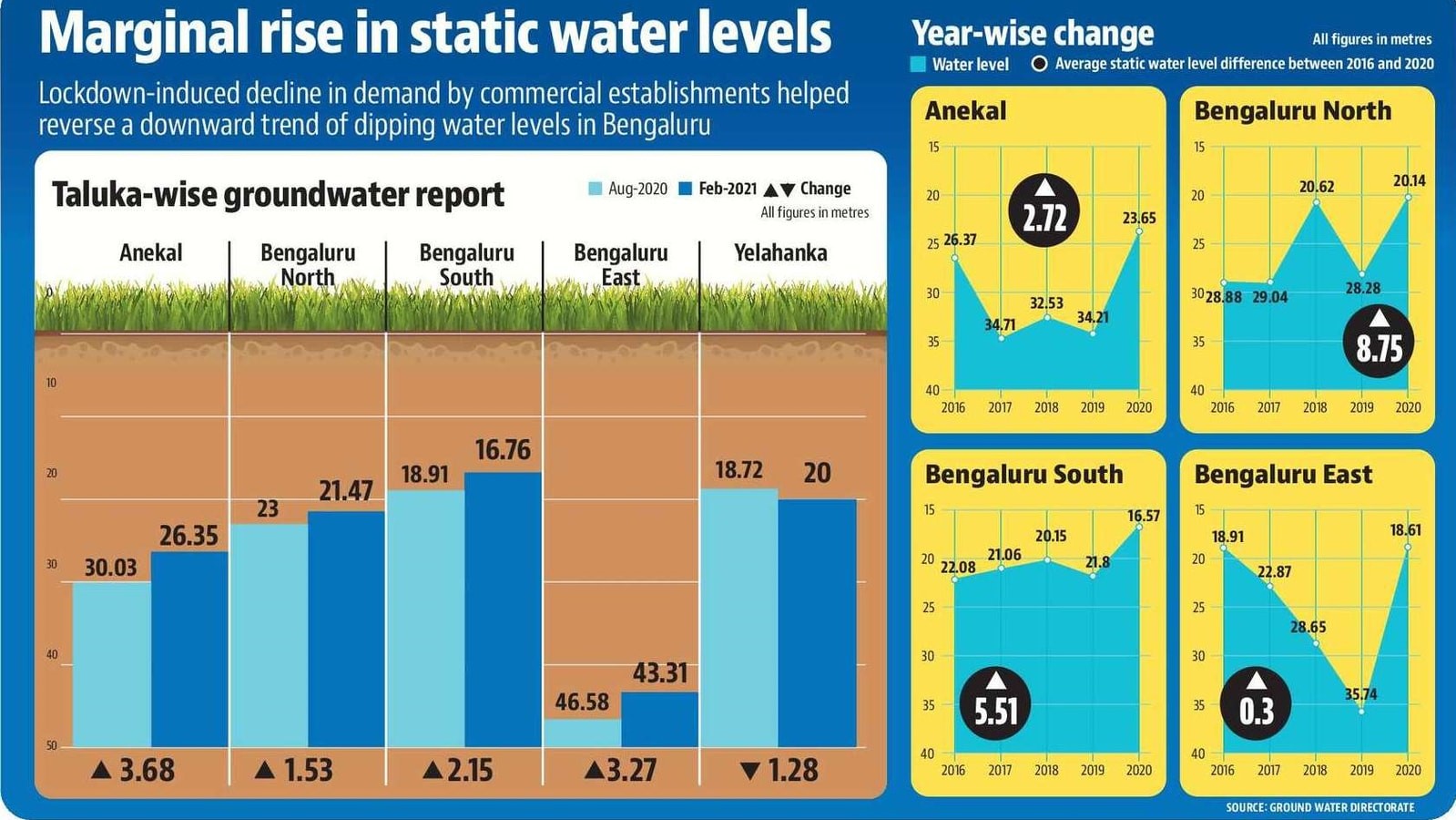Rapid urbanisation, agricultural practices, and lack of effective policies contribute to a concerning decline in groundwater levels.
The recent groundwater level fluctuation report by the Karnataka Groundwater Directorate has highlighted that when compared to November last year, the groundwater level in eight out of nine taluks in Bengaluru’s urban and rural districts has dropped drastically this year.

90 per cent of Karnataka taluks face deep groundwater decline
Barring Bengaluru East, groundwater levels in the rest of the four taluks in Bengaluru urban, namely Bengaluru South, Anekal, Bengaluru North, and Yelahanka have receded a drop of more than four meters below ground level. All four rural taluks – Anekal, Doddaballapur, Devanahalli, and Hoskote – have also experienced a notable decline in the water table.
This drop is also seen in nearly 90 per cent of the taluks across Karnataka. As per the report, the groundwater level has recessed by more than 4 meters in 210 out of 236 taluks compared to last year. According to the report, the groundwater in most of the taluks is now available at 20—30 meters below ground level. In Bengaluru East and Anekal, it is reachable at 30—40 meters below ground level. Experts say rapid urbanisation, clubbed with a lack of awareness about soil ecology, chemical-intensive agriculture practices, and lack of action against commercial exploitation of groundwater by authorities concerned are prime reasons behind the declining trend of the groundwater table.

Photo Credit: Hindustan Times
“Many countries today are pondering over the concept of sponge city. However, we had a perfectly well-functioning sponge city and we destroyed it. There is no understanding of soil ecology among farmers and agencies such as the Karnataka Ground Water Authority (KGWA) and the Minor Irrigation Department. We are destroying our water security due to this lack of understanding. Moreover, departments responsible for conserving water resources mostly are of a conventional engineering mindset, unable to look at the sustainability way,” said Sandeep Anirudhan of Namma Whitefield.
Experts say while the Karnataka Water Policy for effective management of water was brought in and approved by the state cabinet in 2022, its implementation still appears to be a distant dream.
“The Karnataka Water Policy 2022 revolves around the issue of overexploitation of groundwater and talks about mechanisms to collect excess water during flood for future use. It is a sound policy covering aspects such as rejuvenation of groundwater table and holistic healing of wetlands. However, it is yet to see light of the day,” added Anirudhan.
“Many countries today are pondering over the concept of sponge city. However, we had a perfectly well-functioning sponge city and we destroyed it”
They opine there is a need to shift from a supply approach to a demand management approach, which will play a critical role in reaching groundwater sustainability.
“In many parts of Karnataka and even in Bengaluru, borewells are being dug in areas that do not require them. For instance, while rainfall and open wells should suffice the water needs of Coorg, borewells are mushrooming even in this region. Departments responsible for the conservation and management of groundwater should initiate talks around demand management. While banning borewell digging is one way to go about ensuring judicial use of groundwater, it has to be followed up with information about different avenues and awareness about depleting groundwater table,” said Shubha Ramachandran, water team lead at Biome Environmental Trust.
Vardhman Envirotech
India’s Passionate rainwater company
This article is published on: Bangalore Mirror, 19 December, 2023
We would like to spread this for the benefit of fellow Indians.
